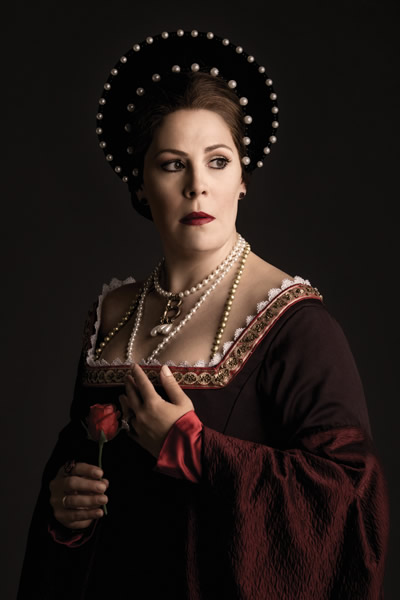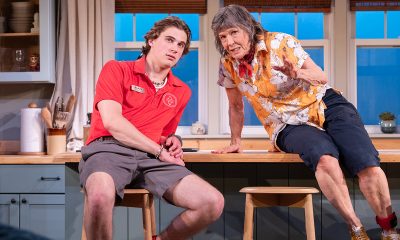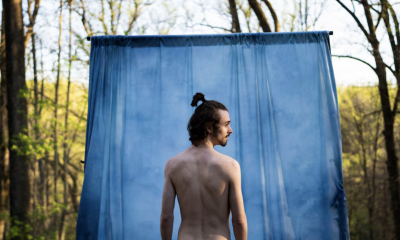Arts & Entertainment
Of queens and minions
Washington National Opera features high-stakes and high-jinks in new season
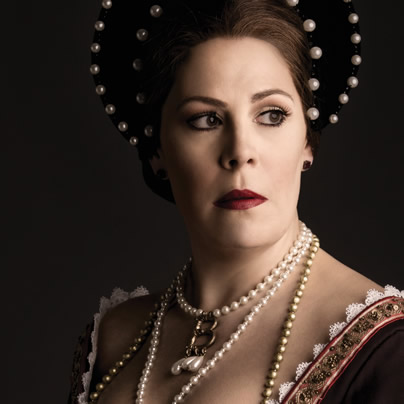
‘Anna Bolena’
Washington National Opera
Sept. 15-Oct. 6
‘Don Giovanni’
Sept. 20-Oct. 13
Kennedy Center
2700 F St., NW
$25-$300
202-467-4600
kennedy-center.org
From epic royals to legendary libertines, Washington National Opera’s 2012-2013 season openers are a perfect fit for capital city audiences mired in a presidential election year.
First out of the gate is Gaetano Donizetti’s “Anna Bolena,” opening Sept. 14. Starring soprano Sondra Radvanovsky in the title role, the 19th-century opera follows the waning days of Anne Boleyn’s reign as Queen of England before being found guilty of adultery and beheaded.
“The opera is amazing dramatically,” says Radvanovsky, “and the music on top of it is just any soprano’s dream.”
Radvanovsky made a name for herself in the dramatic soprano repertoire of Giuseppe Verdi, but in recent years, she started branching out to explore other roles. Often compared to renowned soprano Maria Callas, who revived “Anna Bolena” from near obscurity in the 1950s, Radvanovsky’s voice possess a full-blooded timbre that’s matched by a riveting acting sense, according to her director for this production, Stephen Lawless.
“The intelligence which she brings to the playing of Anna is thrilling and moving,” says Lawless, who’s gay. “She always puts her abilities to the service of the job in hand.”
The opera culminates in a heartbreaking and defiant mad scene for Anna, yet both Lawless and Radvanovsky feel this isn’t the garden-variety hysteria portrayed in other operas, including the same composer’s calling card “Lucia di Lammermoor.”
“She’s emotionally naked,” Radvanovsky says of the queen. “The easy card to put down is to play cuckoo-for-Cocoa-Puffs. Anna Bolena isn’t crazy; it’s just too much for her to handle, and I think that’s something that more people can relate to.”
“She finds inner resources that I suspect she never knew she had,” Lawless says about the doomed queen, adding that her death transforms tragedy into “something glorious.”
DESPITE THE TUDOR-ERA setting for the story, the opera’s themes bear striking relevance to today’s social and political climate. Donizetti contrasts Anna’s undoing with the ascendency of the social-climbing Jane Seymour, who has caught the eye of Henry VIII and will become queen after Anna’s decapitation. However, Anna’s betrayal of a true love from girlhood haunts her throughout out the story, reminding Jane Seymour and audiences that dreams of power can’t buy happiness.
“I started singing when I was 11,” says Radvanovsky. “When I was 18 years old, I said, ‘By the time, I’m 30, I’m going to be singing at the Met.’” This dream came true for the singer, as did her chance to sing with legendary tenor Placido Domingo. She sang with him during “Cyrano de Bergerac” on her 35th birthday, causing her to ask the older legend what she should do now that she’d accomplished her goals.
“He told me, ‘Oh, Sondra. You must go get a new dream.’”
Now in her 40s, Radvanovsky feels that anyone, from the American people trying to choose a president to a young girl aspiring to be queen of 16th-century England, needs to focus on the moment at hand instead of an unpredictable future.
“If [Anna] had lived in the moment, she would have seen that she wasn’t in love with [Henry], but she was looking a year ahead. We are looking into politics in the same way. We put so much hope in these dreams, hoping that Obama or whoever continues down the road we want.”
Lawless, a British native, sees the opera’s connection to today’s audience in a slightly darker hue, recounting how Russian President Vladimir Putin visited the United Kingdom during the recent Olympics. While there, he was asked about Pussy Riot, the female punk band who staged a protest act against Putin weeks before his recent election to the presidency.
“He said, ‘I hope the courts will be lenient with her,’” remembers Lawless, “and that’s exactly a Henry [VIII] statement. It’s that kind of abuse of power that gives this piece its ironic resonance. Henry’s abuse of power should make you as angry as the Pussy Riot thing.”
WASHINGTON NATIONAL OPERA’S next piece, Mozart’s “Don Giovanni,” follows close on the heels of “Anna Bolena” and opens Sept. 20. The infamous womanizer of the title gets his karmic comeuppance by opera’s end, attended throughout by his long-suffering servant, Leporello, played by gay bass-baritone Andrew Foster-Williams.
“I have played it once before, where he was very dark,” he says of the character. “I’ve since come to realize that’s not right. It needs to be multi-layered. We need to remember that it’s a ‘dramma giocoso’ — a dark comedy.”
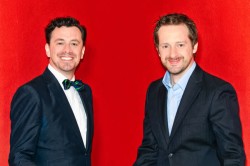
Paul (left) and Andrew Foster-Williams. Andrew plays Leporello in Washington National Opera’s production of Mozart’s ‘Don Giovanni.’ (Photo courtesy WNO)
The singer travels the world with his partner, photographer Paul Foster-Williams, who grew into an avid opera devotee because of his 14-year relationship with Andrew.
“I didn’t come from an opera background,” Paul says. “Now, I would do anything to go and see opera. It gives you the most returns in any art form.”
Paul compares opera with baseball, a realization he came to after going to see a Nationals game while staying in D.C. last spring for Andrew’s turn in “Werther.”
“I had no idea what was going on,” Paul says, laughing. “If you go to the football or soccer game and you don’t know the rules, you might not ever go to another game. It’s the same with opera. The more you experience, the more you get it, the more you will be come absolutely addicted to it, I promise.”
“The reasons people enjoy baseball is because they understand the rules,” Andrew adds. “They learned the rules, therefore they understand the skill of the players.”
The charming British couple hastens to add that opera is performed with translation surtitles projected above the stage, so no one need sit through hours of unintelligible bellowing.
THE FOSTER-WILLIAMSES are clearly a couple who have their own rules down pat. They say they’ve had to develop particular ways of living a life that’s eternally on the road.
“We land in a place,” says Paul. “Andrew goes out and gets provisions. I try to make the apartment feel like a home. We don’t speak to each other at least for a couple of hours.”
“If you’re going to have an argument, it’s then,” Andrew concurs.
“I think some people would end up killing each other,” says Paul. “We’re very lucky. Other people go to separate jobs, and they have separate things to share. What we’re sharing is the discovery of different places together.”
Some productions settle them in a city for a couple of months, while others find them hopping four continents in one week, as it did last spring. After finishing up in D.C., they went to London, Hong Kong and finally Sydney, Australia, which was locked in the grips of winter.
“We had to buy new clothes and leave some new clothes,” Andrew says.
Despite the chaos, the couple remains passionately committed to the arts. Paul’s photography has had to take on a new character, as long-term projects are out of the question now, so he ends up photographing the artists Andrew works with as well as the city locations Paul explores during his partner’s long rehearsal hours.
“Experiencing so much music traveling with Andrew, I think I understand singers well. Singers adapt to each evening, each audience, the atmosphere that evening. It’s so organic, it’s so alive all the time.”
Andrew sums up the role of the artist as an obligation to restoring the humanity to operatic characters.
“This is about making opera real again. The fate of it rests in the hands of the artists singing it.”
Arts & Entertainment
2026 Most Eligible LGBTQ Singles nominations
We are looking for the most eligible LGBTQ singles in the Washington, D.C. region.

Are you or a friend looking to find a little love in 2026? We are looking for the most eligible LGBTQ singles in the Washington, D.C. region. Nominate you or your friends until January 23rd using the form below or by clicking HERE.
Our most eligible singles will be announced online in February. View our 2025 singles HERE.
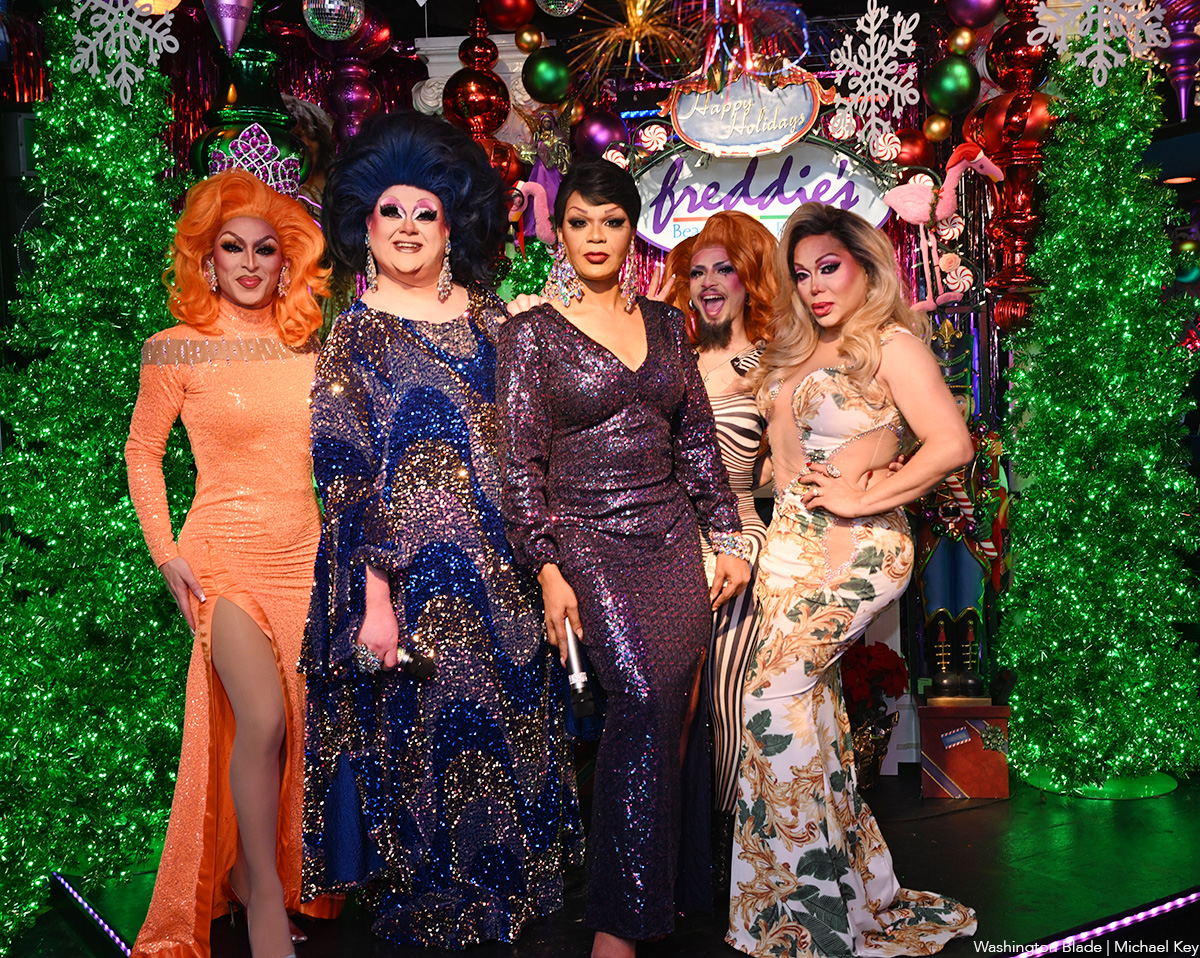
The Freddie’s Follies drag show was held at Freddie’s Beach Bar in Arlington, Va. on Saturday, Jan. 3. Performers included Monet Dupree, Michelle Livigne, Shirley Naytch, Gigi Paris Couture and Shenandoah.
(Washington Blade photos by Michael Key)

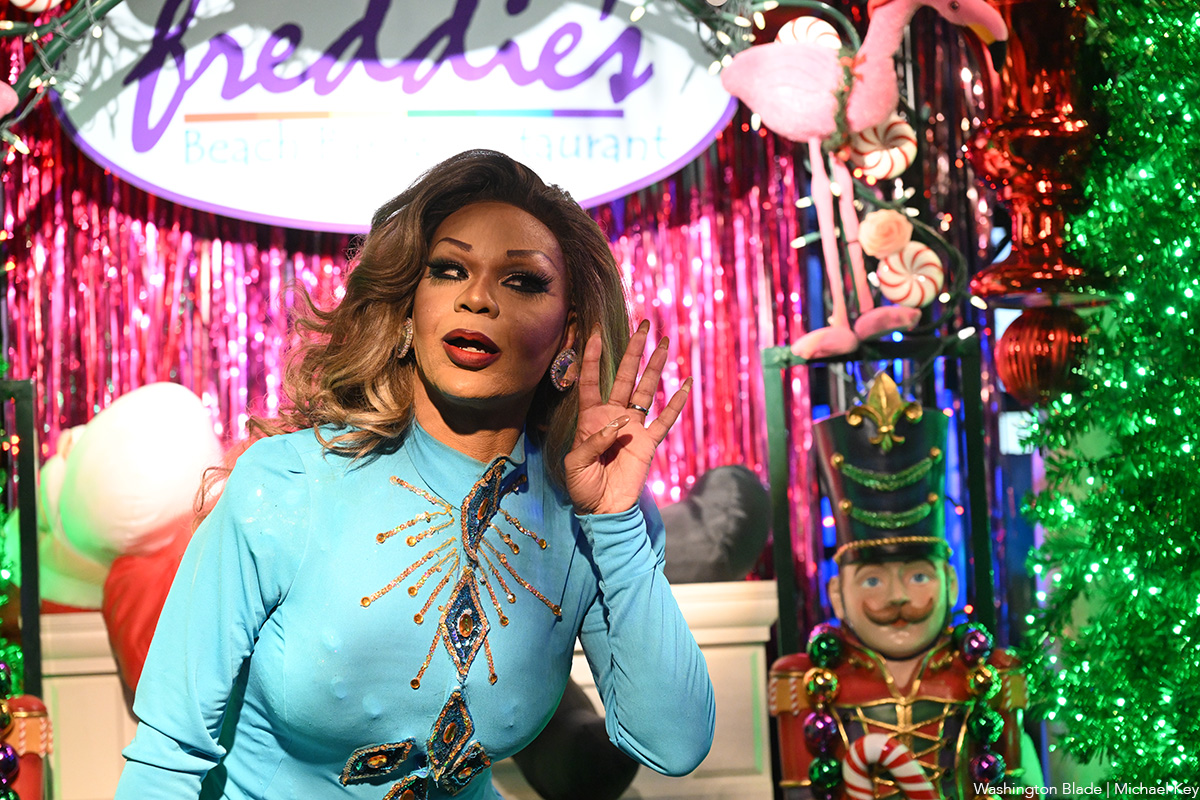





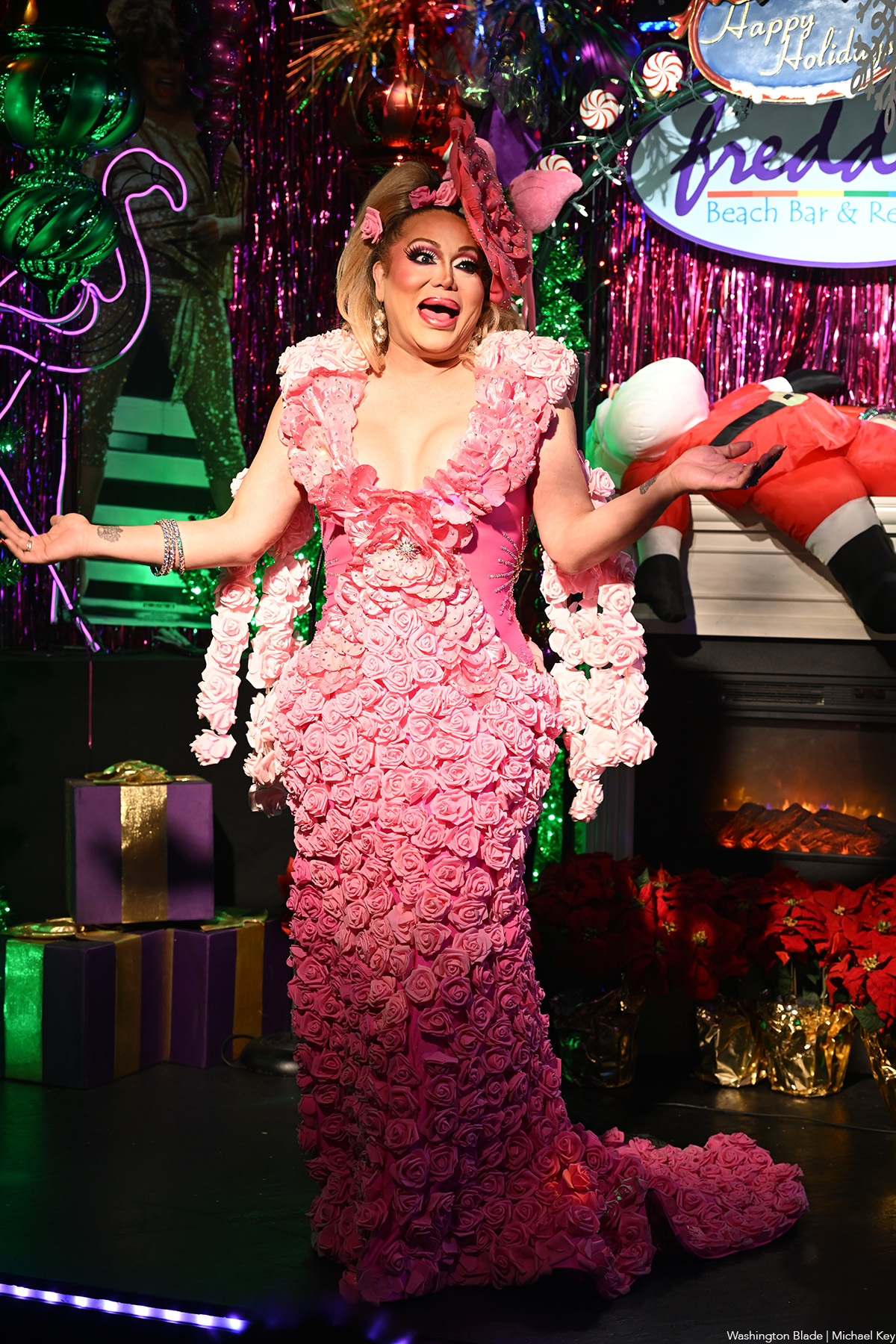
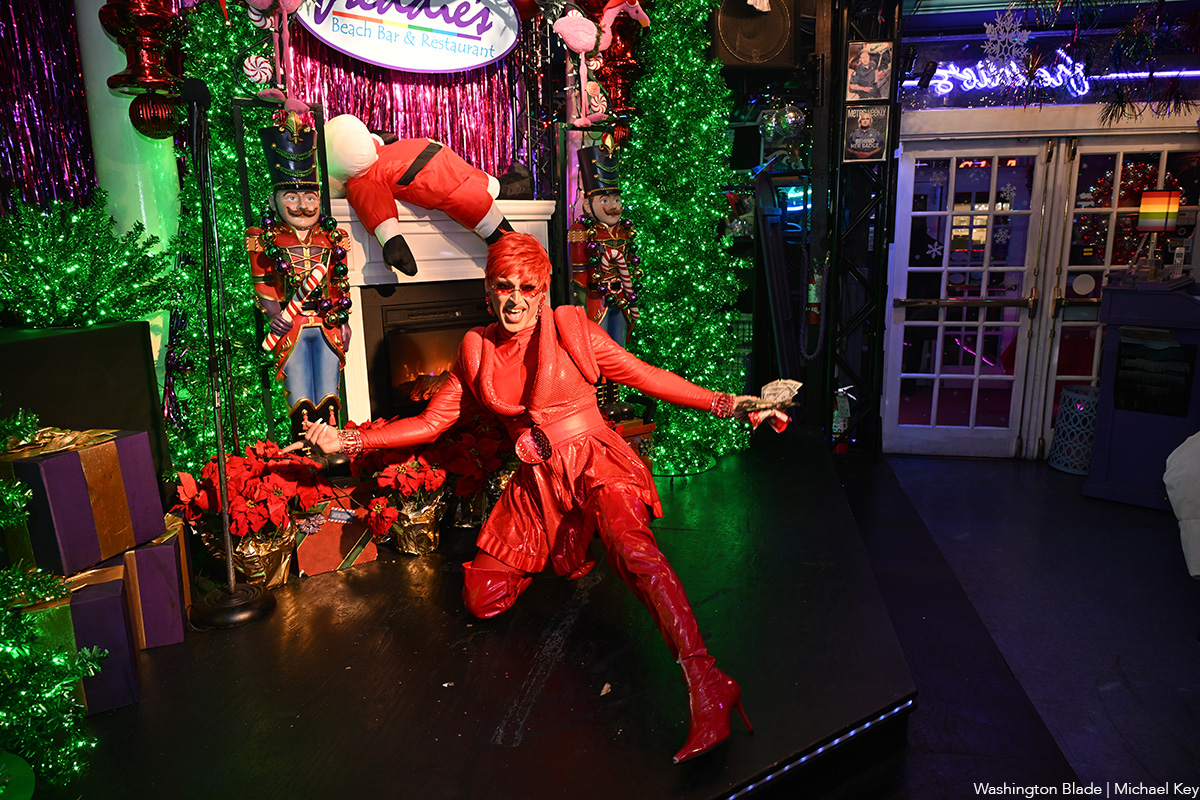
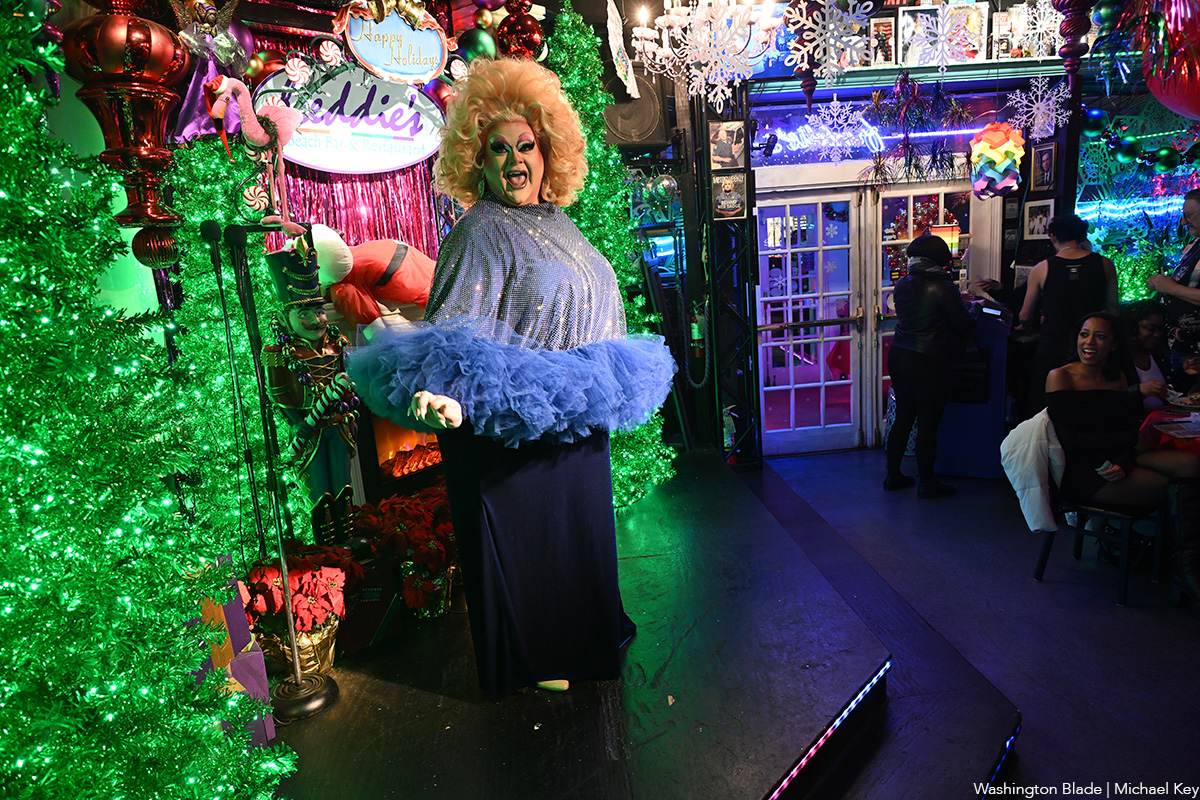
a&e features
Queer highlights of the 2026 Critics Choice Awards: Aunt Gladys, that ‘Heated Rivalry’ shoutout and more
Amy Madigan’s win in the supporting actress category puts her in serious contention to win the Oscar for ‘Weapons’
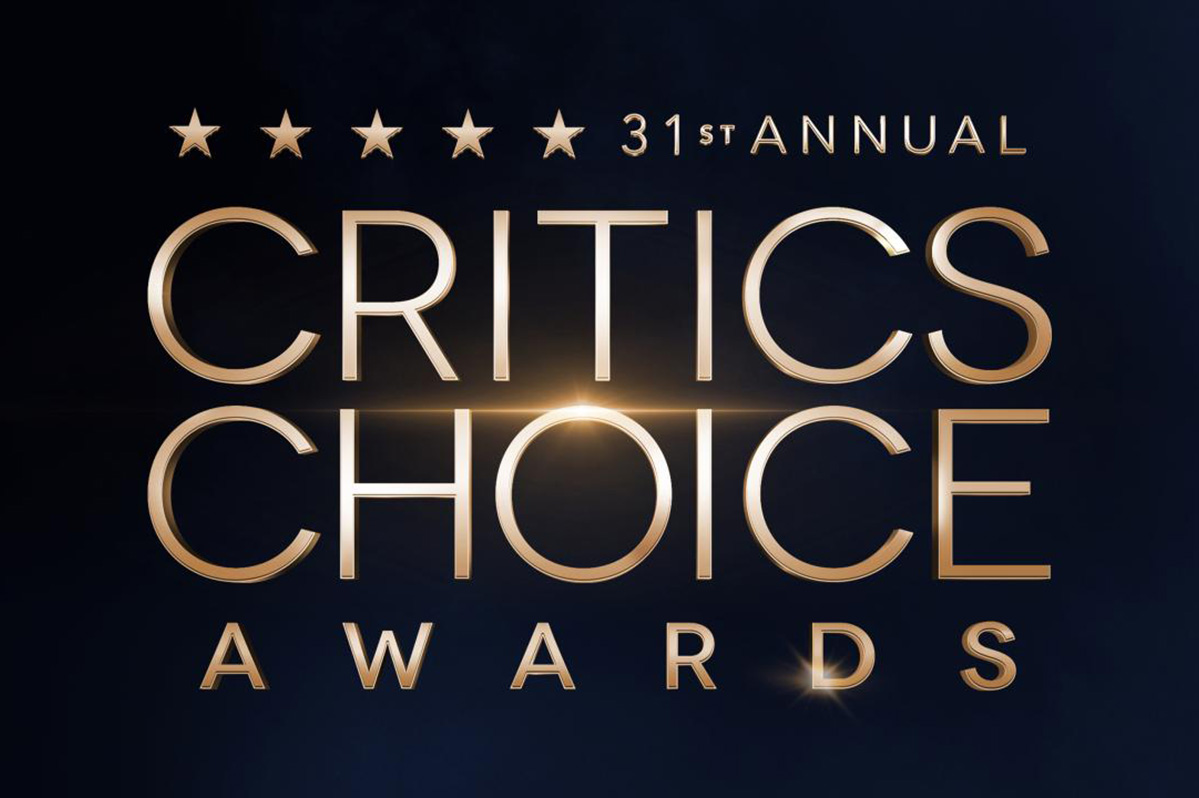
From Chelsea Handler shouting out Heated Rivalry in her opening monologue to Amy Madigan proving that horror performances can (and should) be taken seriously, the Critics Choice Awards provided plenty of iconic moments for queer movie fans to celebrate on the long road to Oscar night.
Handler kicked off the ceremony by recapping the biggest moments in pop culture last year, from Wicked: For Good to Sinners. She also made room to joke about the surprise hit TV sensation on everyone’s minds: “Shoutout to Heated Rivalry. Everyone loves it! Gay men love it, women love it, straight men who say they aren’t gay but work out at Equinox love it!”
The back-to-back wins for Jacob Elordi in Frankenstein and Amy Madigan in Weapons are notable, given the horror bias that awards voters typically have. Aunt Gladys instantly became a pop culture phenomenon within the LGBTQ+ community when Zach Cregger’s hit horror comedy released in August, but the thought that Madigan could be a serious awards contender for such a fun, out-there performance seemed improbable to most months ago. Now, considering the sheer amount of critics’ attention she’s received over the past month, there’s no denying she’s in the running for the Oscar.
“I really wasn’t expecting all of this because I thought people would like the movie, and I thought people would dig Gladys, but you love Gladys! I mean, it’s crazy,” Madigan said during her acceptance speech. “I get [sent] makeup tutorials and paintings. I even got one weird thing about how she’s a sex icon also, which I didn’t go too deep into that one.”
Over on the TV side, Rhea Seehorn won in the incredibly competitive best actress in a drama series category for her acclaimed performance as Carol in Pluribus, beating out the likes of Emmy winner Britt Lower for Severance, Carrie Coon for The White Lotus, and Bella Ramsey for The Last of Us. Pluribus, which was created by Breaking Bad’s showrunner Vince Gilligan, has been celebrated by audiences for its rich exploration of queer trauma and conversion therapy.
Jean Smart was Hack’s only win of the night, as Hannah Einbinder couldn’t repeat her Emmy victory in the supporting actress in a comedy series category against Janelle James, who nabbed a trophy for Abbott Elementary. Hacks lost the best comedy series award to The Studio, as it did at the Emmys in September. And in the limited series category, Erin Doherty repeated her Emmy success in supporting actress, joining in yet another Adolescence awards sweep.
As Oscar fans speculate on what these Critics Choice wins mean for future ceremonies, we have next week’s Golden Globes ceremony to look forward to on Jan. 11.

